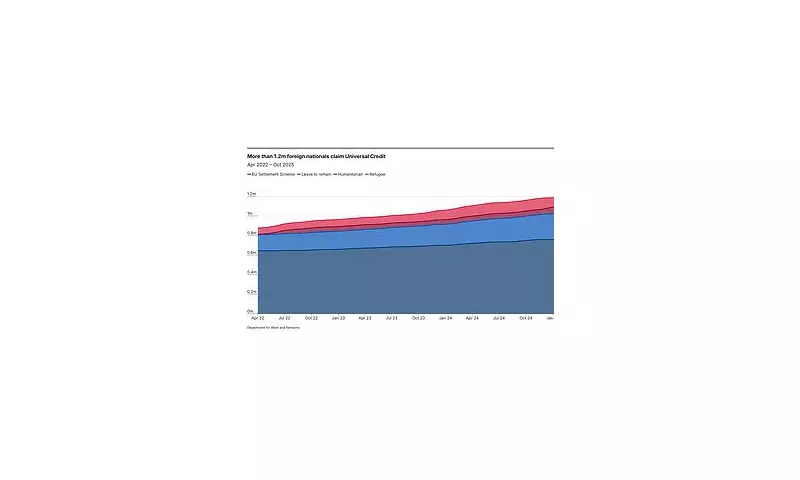
Newly released government statistics have revealed that nearly 1.3 million foreign nationals are now receiving Universal Credit, contributing to a record-high total number of claimants. The data, published last week, has ignited a fierce political debate over the UK's welfare system and its generosity.
Breaking Down the Universal Credit Figures
The latest data from the Department for Work and Pensions (DWP) shows that 1,270,107 people who were not UK or Irish nationals were claiming the main jobless handout as of last month. This marks an increase from 1,255,955 in September, although the exact number of new claimants is unclear due to the ongoing transition of other legacy benefits into the Universal Credit system.
While the overwhelming majority of recipients—around seven million—are British or Irish, the figures concerning foreign nationals have raised significant questions. Of these, approximately 760,000 were EU nationals who retain continuing rights under the Brexit withdrawal agreement struck with Brussels.
It is crucial to note that Universal Credit is not solely for the unemployed; it can also 'top up' the income of those in low-paid work. However, a detailed breakdown from September shows that 747,376 of the foreign nationals receiving UC were not in employment.
Record High Claimants and Political Reactions
The overall picture for October is stark. A record 8.3 million people were claiming Universal Credit, a figure that represents almost a quarter of the working-age population. This is a substantial increase from the 7.2 million recorded at the same point last year.
Perhaps more strikingly, the data indicates that four million people have 'no work requirements' attached to their benefits. This means almost half of all Universal Credit claimants are currently exempt from the obligation to seek employment.
The DWP has stressed that the rising numbers are largely due to the managed migration of people onto the benefit from older systems. Nonetheless, the figures have drawn sharp criticism from political opponents.
A Looming Budget and Welfare Reform Debate
The Conservative party has been urging Chancellor Rachel Reeves to prioritise cutting benefit spending over hiking taxes in her upcoming Budget. Shadow work and pensions secretary, Helen Whately, described the newly published statistics as 'shocking'.
'That's millions of people not expected to work, when many of them could and should be contributing to our economy,' Whately stated. She went on to accuse the Prime Minister of being 'spineless' and unprepared to take 'the tough decisions our country needs.'
She added, 'He caved into his Left-wing backbenchers on welfare reform and now it looks like he'll do the same with the two-child benefit cap. It's classic Labour to pay more to people on benefits who have large families by picking the pockets of hard-working taxpayers.'
As the Budget looms, these figures are set to intensify the debate over the future of welfare, work requirements, and government spending in Britain.





